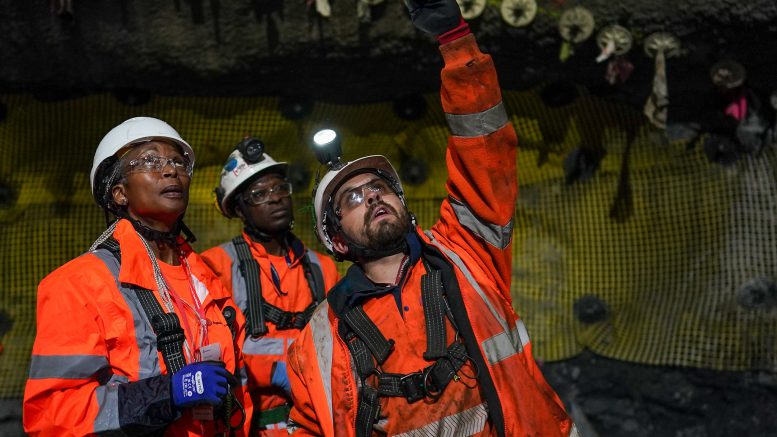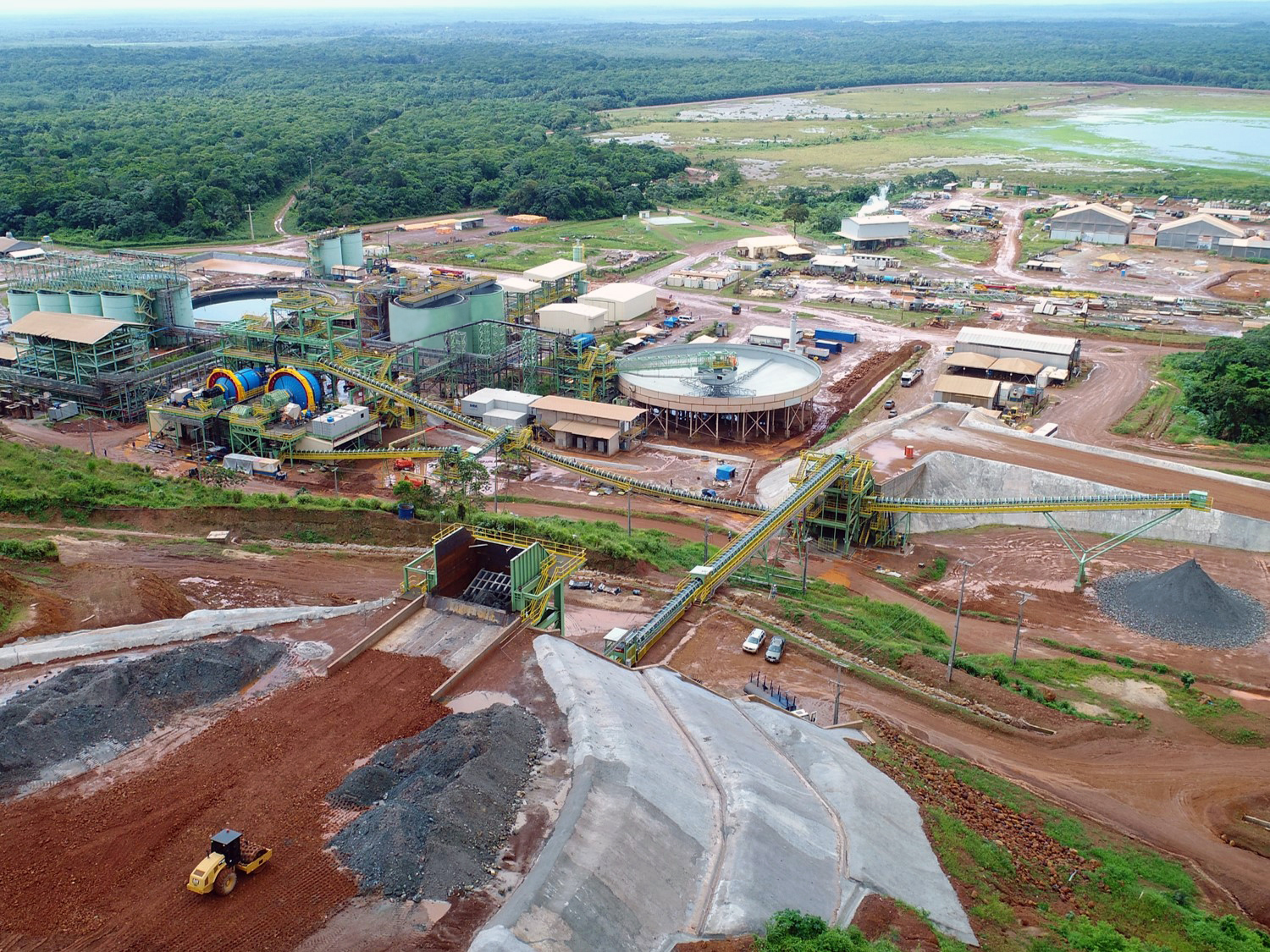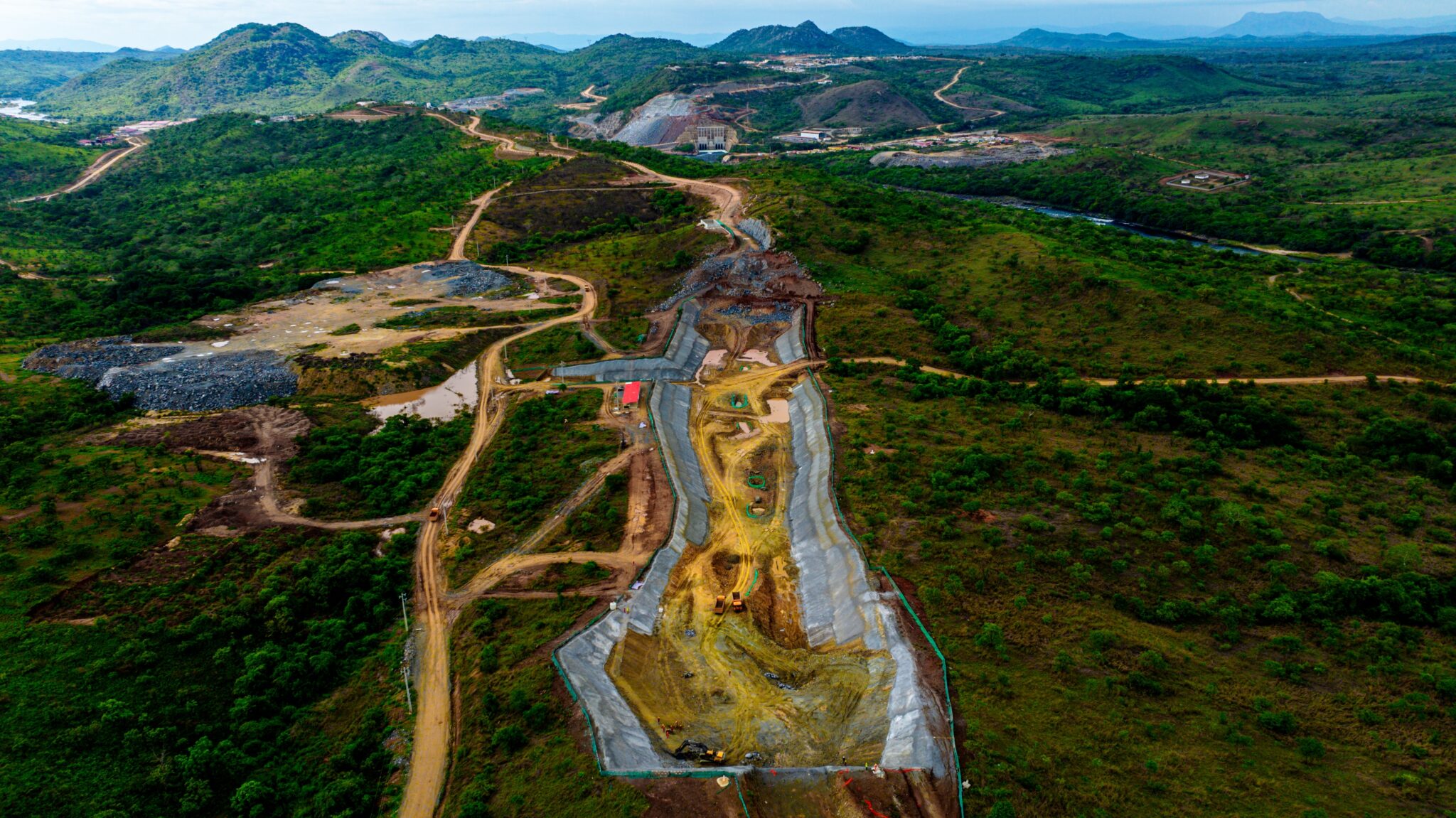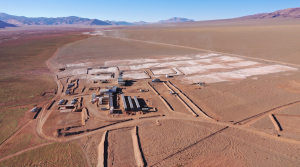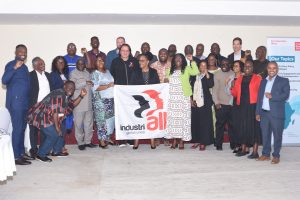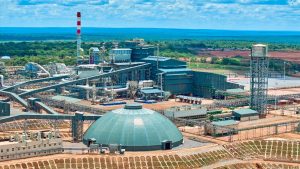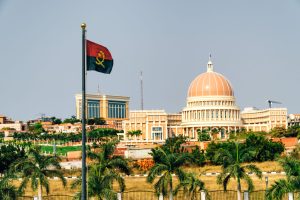South Africa’s unity rule may boost mining
Anglo American workers in South Africa. (Source: Anglo American)
South Africa’s new coalition government with a pro-business party could help the world’s leading platinum producer improve its troubled power and rail networks getting metal to market, analysts say.
The African National Congress, the party that’s led the continent’s most-developed country since apartheid ended 30 years ago, brokered a government of national unity on June 14. It lost its majority in parliament for the first time. The ANC earned 40.2% of the May 29 national vote, down from 57.5% in 2019 and higher amounts in earlier elections.
President Cyril Ramaphosa is working with the market-friendly Democratic Alliance (DA), which got 21.8% of the vote, and the regional Inkatha Freedom Party (IFP) with 3.9%. The ANC excluded the radical socialist Economic Freedom Fighters (EEF), who took 9.5% and uMkhonto weSizwe (MK), a new party centred around former president Jacob Zuma that garnered a surprising 14.6%.
“Cyril has got a mandate that he sought with the DA and IFP,” Alex Vines, director of the Africa program at Chatham House in London, told The Northern Miner by email from Maputo in neighbouring Mozambique. “The EFF and MK really didn’t negotiate seriously and the key ask of the electorate was to improve business investment and create jobs. This coalition may assist on the reforms.”
South Africa faces the world’s highest unemployment rate at around 30% officially. Corruption almost spiralled out of control under Zuma. Widespread power outages, called load-shedding in the local lingo and caused by mismanagement at the utility Eskom, have been occurring for more than 15 years. Transnet oversees an inefficient rail and ports system. The coalition could be the spark to inspire Ramaphosa’s government after six years leading the country with few successes.
Positive outlook
“Markets and the business community are, overall, quite positive,” Shawn Duthie, associate director in Johannesburg for intelligence consultant Control Risks, said by email. “Mining in particular should be a top priority with the new government trying to show it is still a smart place for mining companies to invest capital.”
South Africa’s mining legacy is tied to gold mining dating to the 1880s around Johannesburg and platinum northwest of the financial capital near Randburg. Diamonds also figure in its history. Gold Fields (NYSE: GFI; JSE: GFI) is the country’s largest miner by market value at $17.9 billion followed by Anglo American Platinum (JSE: AMS); AngloGold Ashanti (NYSE: AU), Harmony Gold (NYSE: HMY; JSE: HAR) and Sibanye-Stillwater (NYSE: SBSW; JSE: SSW).
Even before the coalition formed, Ramaphosa said on June 10 that he expected the new government to focus on his Operation Vulindlela, a plan to promote market-friendly reforms. These include trying to fix Eskom, Transnet and water infrastructure while streamlining skilled visa applications and attracting more mining investment.
Still, the challenges are huge. Other problems include sorting out how to pay for national health insurance and income grants to citizens, and just general service delivery, Duthie said.
“None of these are easy and, in the short term, it may involve some sacrifices (in particular jobs) to make this happen,” he said. “The biggest challenge for the government is changing the perception, not only of foreign investors who they want to keep in the country or enter the market, but, more importantly, the local population.”
Political will
If Zuma, whom Ramaphosa ousted as leader in 2018 after a series of corruption scandals, had still been in charge, the approach to a coalition would have been vastly different, Duthie said. How the ANC and Ramaphosa accepted the election results and quickly entered into negotiations is a large factor promoting optimism in the business community. But it will take strong political will for the parties to compromise in achieving results, and the coalition may not last, he said.
“It is very unlikely that the national unity government, as we know it now, will be there when the next elections come around in 2029,” the analyst said. “There will be changes, perhaps only small ones as parties head back to opposition, but this really is dependent on whether the parties can work to govern together and not see every policy battle as a zero-sum game.”
It’s not the country’s first post-apartheid coalition. The initial Nelson Mandela-led government had a national unity structure with F. W. De Klerk of the National Party as vice-president, according to an interim constitution that was replaced in 1997. The new constitution enshrined the country’s system of proportional representation requiring a coalition if no party wins more than half of the parliamentary seats.
The DA is primarily seen as a party for the white and mixed-race (known as coloured) segments of the population, about 20%. On the provincial level, the party controls Western Cape, where its power generation privatization has reaped rewards. The EFF, led by former ANC youth leader Julius Malema, said it would never serve in a government including the DA. It also demanded the finance portfolio.
“There are a lot of people who are not pleased with the ANC/DA governing together,” Duthie said. “They’ll have to show that they can work together for the good of all South Africans.”
KwaZulu-Natal
Zuma’s MK called for the resignation of Ramaphosa. MK and the IFP are confined almost entirely to the eastern KwaZulu-Natal province. The IFP is a Zulu nationalist party, yet it respects democracy and represents the country’s largest ethnic group, a key component for a government of national unity.
“What we don’t fully understand is the politics of KwaZulu-Natal and the rise of MK,” Vines said.
Zuma, who is 82 and has had health problems, was a populist leader as president and sometimes compared to Donald Trump.
“Zuma is far from irrelevant in South African politics,” Duthie said. “MK, however, is completely linked to Zuma and if he was no longer in the picture, it is highly unlikely that MK would do as well in any future elections.”
Ramaphosa chose a path in line with the constitution, which MK has said it wants to get rid of because it’s colonial, while avoiding the racial politics of the EFF’s Malema who’s spoken against whites and Indians, The Economist said. The DA’s respect for property rights, central-bank independence and fiscal prudence gives the coalition a chance of overseeing vital reforms, it said.
“I was in South Africa yesterday,” Vines of Chatham House said this week. “The mood was one of expectation and anticipation, hope that the ANC will now do better.”
Share this content:
